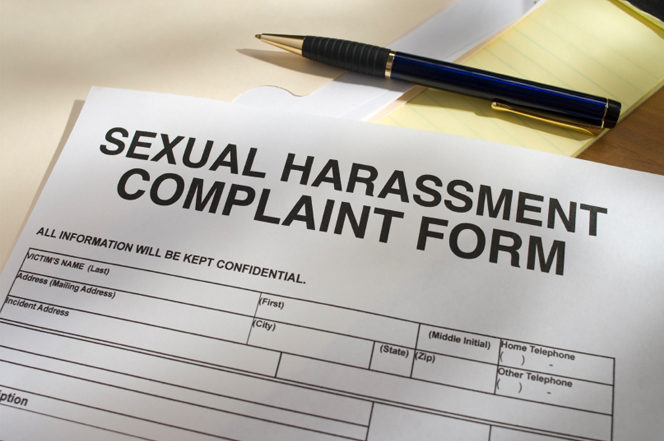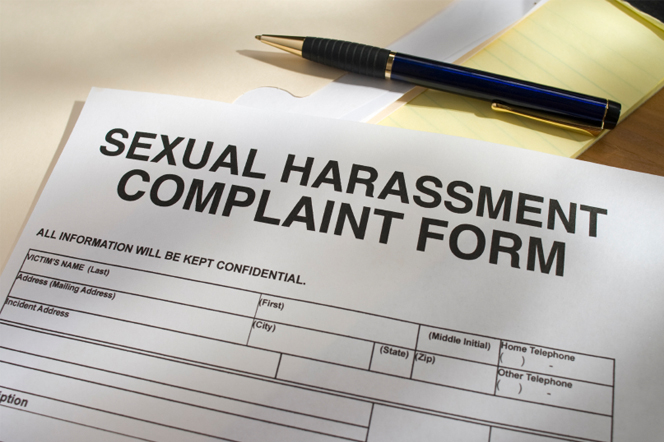
Texas Labor Code Chapter 21 and Title VII of the Civil Rights Act of 1964 forbid employment-related sexual harassment. These laws make it unlawful to harass a job applicant or employee based on the individual’s sex. The illegal harassment can include sexual misconduct, unwelcome sexual advances, sexually derogatory language, requests for sexual favors, and other verbal or physical harassment that is sexual in nature. Both men and women can be victims of sexual harassment and harassers can be co-workers, supervisors, managers, owners, clients and customers. Sexual harassment can occur with unwelcome physical contact such as unwanted kissing, groping, fondling, or touching, as well as sexual assault and rape. Sexual harassment can also occur without physical contact where, for example, there is unwanted, offensive communication, language, pictures or images. Workplace misconduct of a sexual nature is not limited to any particular industry or types of businesses. Hostile work environments created by sexual harassment can arise in the restaurant and bar industry and the construction industry, as well as in the oilfield, in manufacturing facilities and refinery plants, among many other places of employment.
As an Equal Employment Opportunity Commission (EEOC) District Director pointed out in a sexual harassment lawsuit filed by EEOC lawyers, “[s]exual harassment can have a demoralizing effect on everyone within the range of it, and it often negatively impacts company productivity on the whole.” Use of sexually explicit words, degrading sexual comments, threats of forced sexual acts, propositions for sex and lewd sexual conduct related to employment are prohibited by law. A workplace where, for example, women must experience or otherwise endure or live with repeated sexual advances in order to remain an employee or otherwise flourish in their jobs (when male counterparts do not) falls short of providing equal employment opportunity required by law. Businesses where employees subjected to sexual harassment report the illegal and offensive behavior can compound illegal and unacceptable sexual harassment by, for example, demoting, discharging or otherwise retaliating against employees making the reports about employment-related sexual harassment and sexual misconduct.
This type of unlawful conduct specifically involves employment setting behaviors by owners, officers, supervisors, coworkers and others which is prohibited by Texas and federal law. Persons subjected to sexual harassment, including men or women, who are seeking additional information about sexual harassment can consult an attorney and access the websites of the Texas Workforce Commission and the Equal Employment Opportunity Commission.
Pregnancy Harassment
The Texas Commission on Human Rights Act prohibits discrimination in employment based on sex. Texas law prohibits discrimination on the basis of sex and sex discrimination includes pregnancy. As explained by the Equal Employment Opportunity Commission, pregnancy discrimination involves treating a woman (an applicant or employee) unfavorably because of pregnancy, childbirth or a medical condition related to pregnancy or childbirth. Unfavorable treatment can occur in hiring, firing, pay, job assignments and other terms and conditions of employment. As with sexual harassment, it is unlawful to harass a woman because of pregnancy, childbirth or a medical condition related to childbirth or pregnancy. When an employer subjects a woman to pregnancy discrimination and harassment, the employer can be in violation of both Texas and federal law prohibiting this type of unlawful behavior.
Recent Sexual Harassment Posts
EEOC Wins Sexual Harassment Verdict
In a December 21, 2018 press release, the United States Equal Employment Opportunity Commission (“EEOC”)…
Restaurant Settles EEOC Sexual Harassment Lawsuit
The United States Equal Employment Opportunity Commission (EEOC) is a federal agency responsible for enforcing…
Sexual Harassment Retaliation Lawsuit Settled
The United States Equal Employment Opportunity Commission (EEOC) is a federal agency responsible for enforcing…
Restaurant Pregnancy Discrimination Lawsuits
The United States Equal Employment Opportunity Commission (EEOC) is a federal agency responsible for enforcing…
Pregnancy Harassment Lawsuit
The United States Equal Employment Opportunity Commission (EEOC) is a federal agency responsible for enforcing…
EEOC Restaurant Sexual Harassment Cases
The United States Equal Employment Opportunity Commission (EEOC) is a federal agency responsible for enforcing…







